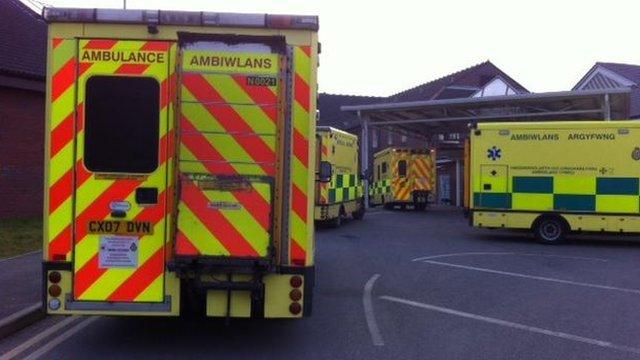40,000 hours of ambulance delays at Welsh hospital A&Es
- Published
Paramedic Nigel Sussex said he had seen "a huge increase in the workload" since he began his career
Patients could be at risk because there's been a five-fold increase in delays faced by ambulance crews outside hospitals, according to the Welsh Ambulance Service.
It has told AMs that almost 40,000 hours were "lost" in 2014 because of so-called "handover delays".
Its report indicates that is up from around 8,000 hours lost in 2008.
The ambulance service's chairman also said its "long-standing and complex problems" were now being tackled.
He was giving evidence to the assembly's health committee, as it began a short inquiry into the performance of the ambulance services in Wales in the light of recent concerns about its performance.
Any wait longer than 15 minutes to transfer patients into hospital is logged as a handover delay, often caused when emergency unit beds are full.
The ambulance service says the delays not only present "risks to patients waiting in vehicles" but are "arguably a greater risk" to patients "in the community".
That is because when crews are tied up outside A&E they are not able to respond to other urgent calls, which can mean no ambulances are available.
Research by the BBC also suggests the ambulance service in Wales, during a four-month period last autumn, faced consistently longer delays than anywhere in England or Northern Ireland.

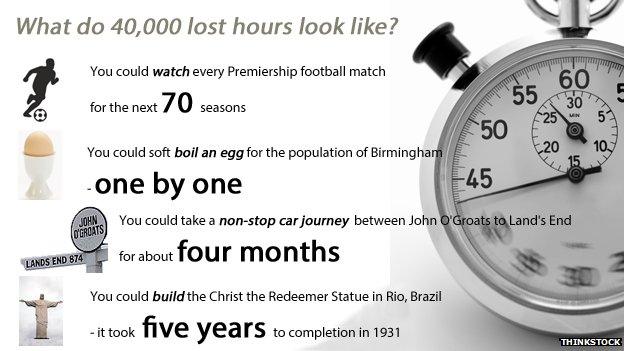
Kept waiting
Between August and November last year the Welsh Ambulance Service reported the longest "average handover time" for 13 weeks of a 16-week period.
In 10 weeks out of the 16, the Welsh Ambulance Service also had the longest single delay of any recorded by the 11 ambulance services that provided information.
The maximum recorded wait for an ambulance patient in Wales exceeded five hours in three of the weeks.
Those delays occurred at University Hospital of Wales in Cardiff, Glan Clwyd Hospital in Bodelwyddan and Wrexham Maelor Hospital.

The report to the assembly's health committee, external suggests handover delays are contributing to problems the ambulance service is encountering in its response time performance.
The most recent statistics published last week showed that only 48.5% of urgent Category A calls received a response within eight minutes in January. The target is 65%.
But other factors, the evidence suggests, are at play:
The report says demand has risen 3% year on year
Frail or elderly patients now account for 50% of all ambulance requests - with calls from "elderly frequent callers" increasing by 253% in seven years.
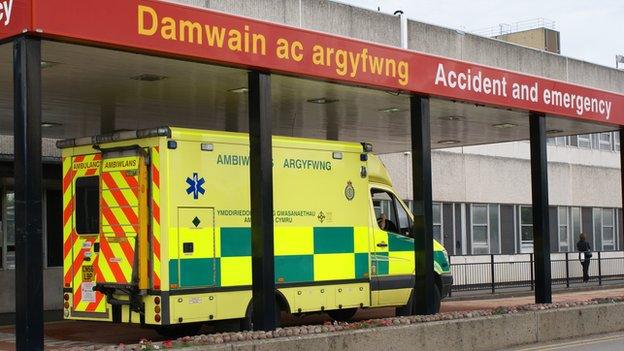
Delays outside Welsh A&E departments could have cost the ambulance service £3m in 2014
Addressing the committee, ambulance service chairman Mick Giannasi listed actions being taken to overcome "long-standing and complex problems", including a "significant" improvement to industrial relations with staff.
"We absolutely acknowledge that the performance of the emergency ambulance service in Wales is not acceptable, particularly not in terms of its achievement against the eight-minute response times target," he said.
"We accept progress is slow, but we passionately believe now that I think our plans will deliver," he added.
Meanwhile, the author of a review into the ambulance service, external said improvements were taking longer than she wanted.
Prof Siobahn McClelland called for major changes when she published her findings, commissioned by the Welsh government, in 2013.
She said some of her recommendations were being introduced in an NHS that was a "very complex organisation that is sometimes very slow to change".
Monitoring delays
Before the committee meeting, a Welsh government official commented: "We expect all patient handovers to be completed in order of clinical priority and in a timely manner.
"Health boards should take responsibility for reducing lengthy patient handover delays. We continue to monitor the situation closely."
- Published28 January 2015
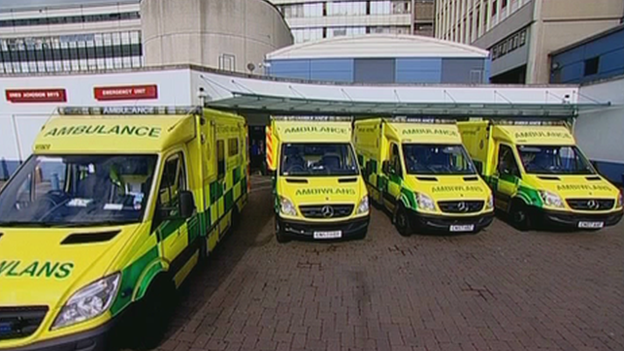
- Published28 January 2015
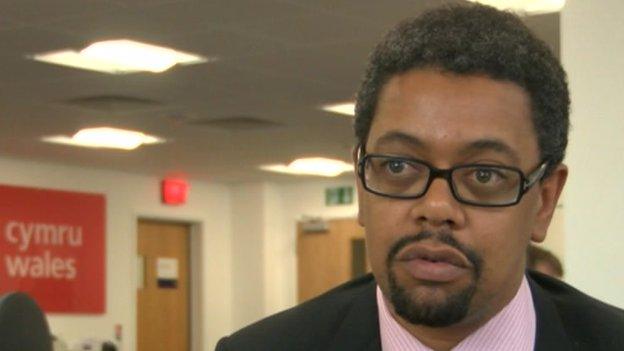
- Published30 December 2014
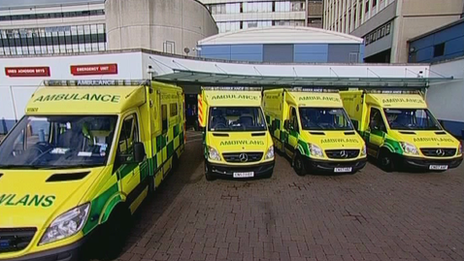
- Published9 December 2013
